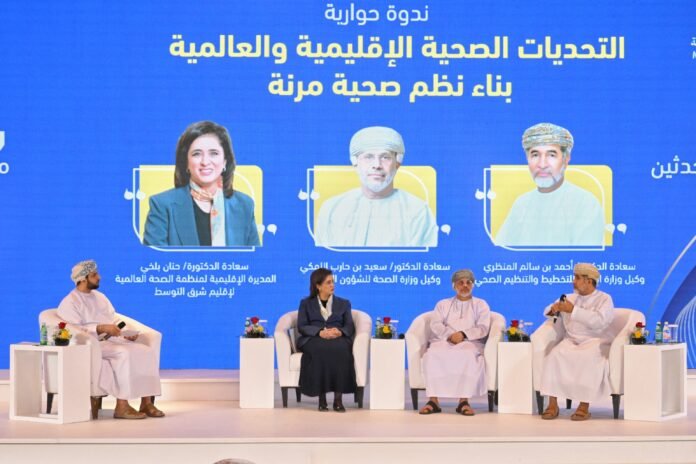Healthcare employment in Muscat took centre stage during a pivotal meeting between senior officials on Wednesday. Sayyid Saud bin Hilal al Busaidy, Governor of Muscat, met with Dr Fatima bint Mohammed al Ajmiyah to address this issue directly. As Executive President of the Oman Medical Specialty Board, Dr Fatima also leads the Healthcare Sector Employment Governance Committee. Together, they focused on advancing healthcare employment in Muscat through urgent action and structured long-term planning. Their talks came amid growing public concern over staffing shortages and system inefficiencies.
Crucially, the meeting emphasised fast-tracking local hiring across Muscat’s hospitals, health centres, and clinics. Dr Fatima highlighted the need to create more job opportunities for trained Omani professionals. In response, the governor committed to reducing red tape and supporting recruitment drives with regional coordination. Additionally, both sides agreed on the urgency of matching educational output with healthcare labour demands. As a result, the need to improve healthcare employment in Muscat emerged as a shared and immediate goal.
Moreover, the officials explored deeper policy changes aligned with Oman Vision 2040. Dr Fatima stressed that national development cannot succeed without a strong and self-sufficient medical workforce. They discussed partnerships between medical universities, public hospitals, and private clinics to close employment gaps. The governor noted that long-term solutions must consider rising urban populations and evolving patient needs. Therefore, healthcare employment in Muscat must keep pace with changing demographics and technology.
Data collection also featured prominently in the meeting, with a call for real-time information systems to track staffing and vacancies. Dr Fatima urged ministries to share employment data more freely to avoid duplication and delays. In turn, the governor offered to coordinate between agencies and help create digital platforms for workforce planning. Both officials agreed that transparency will improve efficiency and reduce mismanagement in health staffing. These ideas aim to build a solid framework for healthcare employment in Muscat.
To conclude, both leaders pledged ongoing collaboration and follow-up meetings to monitor progress. They acknowledged that staffing shortages cannot be solved without structural change and sustained political will. As Muscat continues to grow, health services must be properly equipped and staffed with qualified local professionals. By treating healthcare employment in Muscat as a top-level policy issue, officials have taken a step toward long-term stability. Their coordinated effort offers hope for a better-staffed and better-served healthcare system in Oman.
Would you like a social media caption or a headline summary version of this article?


